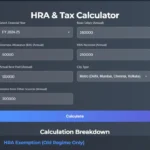Q NO 1. WRITE ABOUT THE ORIGIN AND HISTORY OF AUDITING PROFESSION?
Auditing was found in Kautilya’s Arthshastra in 4th century BC.
It talks about fixed accounting year, a process for closure of accounts and audit the same.
Concepts of periodical checking and verification existed even in those times.
The word “audit” originates from Latin word “audire” means “to hear”.
In medieval times, auditors used to hear the accounts read out to them to check that employees were not careless and negligent.
First Auditor General of India was appointed in British India in 1860 having both accounting and auditing functions.
Presently, Comptroller and Auditor General of India is an independent constitutional authority responsible for auditing government receipts and expenditures.
Institute of Chartered Accountants of India a statutory body was established under an Act of Parliament in 1949 for regulating the profession of Chartered Accountancy in the country.
Q NO 2. WRITE ABOUT MEANING AND NATURE OF AUDITING AND ASPECTS COVERED IN AUDIT?
A. MEANING OF AUDIT:
An audit is an independent examination of financial information of any entity,
whether profit oriented or non-profit oriented,
Irrespective of size or irrespective of legal form,
when such an examination is conducted with a view to express an opinion thereon.
B. NATURE OF AUDITING:
I. INDEPENDENT:
Independent on Appearance => Means: No Relationship, No Ownership.
Independent on Mind => Means: Honesty, Integrity etc.
II. EXAMINATION: Means Verification
III. FINANCIAL INFORMATION: Means Financial Statements & Books of Accounts
Size: Whether Small Business (Ex: 1 Crore Turnover) or Big Business (Ex: 1000 Crores Turnover)
IV. TO EXPRESS AN OPINION THEREON => Means to Express opinion on Financial Statements.}
V. LEGAL FORM:
Whether Registered Entity or Non-Registered Entity.
- Proprietorship firm
- Partnership firm
- Limited Liability Partnership
- Society and
- Company
- AOP or BOI
- Any other artificial Judicial
VI. BOOKS OF ACCOUNTS:
Definition as per Companies Act:
Records maintained in respect of:
- All Spend money and Received Money by the company
- All Receipts and Expenditures of the company
- All Sales and Purchases of goods and services by the company.
- All Assets and Liabilities of the company
- Cost of Items prescribed under section 148
VII. FINANCIAL STATEMENTS:
Definition as per SA 200:
A structured representation of historical financial information & related notes.
Definition as per Companies Act:
- Profit and Loss account or Income and Expenditure account
- Balance Sheet
- Cash flow Statement
- Statement of change in equity
- Notes to financial statements
User of Financial Statements:
Users | Purpose |
Proprietor & Shareholders | To analyses performance, profitability and financial position. |
Lenders – Banks & Fin. Institutions | To Lend Money |
Government | To ensure prompt collection of Direct and Indirect Tax revenues. |
Management | For decision-making & Performance Evaluation. |
Employees | Job security, bonus. |
Suppliers | To determine the credit worthiness of the company. |
Research scholars | For study, research and analysis purpose. |
Customers | To entering into long-term contracts and arrangements. |
VIII. PURPOSE OF AUDIT: To enhance the degree of confidence for the intended users of financial statements.
C. ASPECTS TO BE COVERED IN AUDIT:
Audit should Ensure that:
- Financial statements are Conformity with the entries in books of accounts.
- Journal entries in the books of accounts have sufficient and appropriate evidence.
- No omissions or No duplications or No fictitious entries in financial statements.
- Amounts, Classification, Presentation and Disclosures as per accounting
- Financial statements present true and fair view of operational results
- Financial statements present true and fair view of assets and liabilities.
Q NO 3. WRITE SHORT NOTES ON RELATIONSHIP OF AUDITING WITH OTHER DISCIPLINES?
NEED FOR DIVERSE KNOWLEDGE:
Auditing is interdisciplinary in nature.
It draws from Various subjects including:
- Accountancy
- Law
- Economics
- Behavioral science
- Statistics & Mathematics
- Financial management.
Since audit of financial statements is concerned with financial information,
Auditor should have sound knowledge in:
- Accounting principles,
- Business laws,
- Taxation laws
Interdisciplinary => Means Knowledge about Various Subject
INTERRELATIONSHIP:
I. AUDITING AND ACCOUNTING:
Auditing reviews the financial statements which are nothing but overall result of accounting process.
II. AUDITING AND LAW:
Auditor should have good knowledge of business laws.
III. AUDITING AND ECONOMICS:
Knowledge of subject like economics helps auditor to be familiar with overall economic environment where the business is operating.
IV. AUDITING AND BEHAVIOURAL SCIENCE:
Auditor has to interact with lot of persons for seeking information and making inquiries. This can be done only if auditor has knowledge of human behaviour.
V. AUDITING AND STATISTICS & MATHEMATICS:
It is not possible for an auditor to check each and every transaction. Auditors use statistical methods to draw samples in scientific manner to conduct audit.
Mathematics for verification of Inventories.
VI. AUDITING AND DATA PROCESSING:
Electronic Data Processing (EDP) Audit, helps! how Entity use their Data.
VII. AUDITING AND FINANCIAL MANAGEMENT:
Auditor is expected to have knowledge about various financial techniques such as
- Funds flow,
- Working capital management,
- Ratio analysis etc.
VII. AUDITING AND PRODUCTION:
Good auditor is one who understands the client and his business functions such as
- Production,
- Cost system,
- Marketing
Q NO 4. EXPLAIN THE OBJECTIVES OF AN AUDITOR AS PER SA 200?
OBJECTIVE OF THE AUDITOR:
SA-200 “Overall Objectives of the Independent auditor and the conduct of an audit in accordance with Standards on Auditing”:
To obtain reasonable assurance about whether the financial statements as a whole are free from material misstatement.
To report on the financial statements as required by the SAs.
ANALYSIS OF THE ABOVE:
I. Absolute assurance is a complete assurance (100% assurance) or complete guarantee.
II. Reasonable assurance is distinguished from absolute assurance.
III. Reasonable assurance is not a complete assurance or complete guarantee., Although it is a high-level of assurance.
IV. Misstatements in financial statements can occur due to fraud or error or both.
- Auditor seeks to obtain reasonable assurance whether financial statements as a whole are free from material misstatements caused by fraud or error.
- Obtaining reasonable assurance whether financial statements as a whole are free from material misstatements => Enables the auditor to express an opinion on financial statements whether F/S are prepared in accordance with an Applicable Financial Reporting Framework (AFRFW).
VII. The opinion is reported and communicated in accordance with audit findings through a written report as required by Standards on Auditing.
Q NO 5. WRITE ABOUT SCOPE OF AUDIT AND ITS INCLUSIONS AND EXCLUSIONS?
Scope means Boundaries => Boundaries of Audit => Means What Audit Does, What Audit Does not
Purpose of an audit is to enhance the degree of confidence of intended users of financial statements.
Users of financial statements may be
- Proprietor & Shareholders
- Lenders –
- Banks & Fin. Institutions
- Government
- Management
- Employees
- Suppliers
- Research scholars
Enhancing the degree of confidence is achieved by expression of an opinion by the auditor whether F/S are prepared in accordance with an Applicable Financial Reporting Framework (AFRFW).
SCOPE OF AUDIT INCLUDES:
I. Covered all aspects of entity’s relevant to financial statements.
II. Reliability and sufficiency of financial information
Financial Information => Means Accounting records and other source of data (Ex: Bills, Vouchers, Invoices, Documents etc.)
III. Proper disclosure of financial information:
- Management responsible for preparation and presentation of financial statements.
- Evaluate Judgement, Provision made by management is True & Fair.
- Evaluate Accounting policies applied consistently.
- Evaluate Financial Information expressed in F/S are related to that particular entity.
SCOPE OF AUDIT DO NOT INCLUDE:
I. Auditor is not expected to perform duties which fall outside domain of his competence.
For example:
- Physical condition of certain assets like machinery,
- Life of civil structures like
These cannot be determined by Auditor; these require different skillsets which may be performed by qualified engineers.
II. An auditor is not an expert in authentication of documents.
III. An audit is not an official investigation into alleged wrong doing.
IV. Audit is distinct from investigation.
V. Scope of audit is general and broad whereas scope of investigation is specific and narrow.
Q NO 6. WRITE A SHORT NOTE ON INHERENT LIMITATIONS OF AUDIT?
Process of audit suffers from certain inbuilt limitations, because of that auditor cannot provide absolute assurance, that the financial statements are free from misstatement due to frauds or errors.
Limitations of audit arise due to the following factors:
I. Nature of financial reporting:
Preparation of financial statements involves many judgments by management.
These judgments may involve degree of uncertainty.
II. Nature of audit procedures:
Practical Limitation => It is not possible for an auditor to check each and every transaction. Auditors use Audit samples to conduct audit based on auditor will draw conclusion.
Legal limitation =>Management may not provide complete information as requested by auditor.
Fabricated documents provided by the Management => May led auditor to accept invalid audit evidence
III. Not in nature of investigation:
Audit is not an official investigation. Hence, auditor cannot obtain absolute assurance that the financial statements are free from material misstatements due to frauds or errors.
IV. Timeliness of financial reporting and decrease in relevance of information:
Relevance & Reliability of information decreases over the time.
V. Future events:
Adverse events (Negative Events) may seriously affect ability of an entity to continue its business in Future.
Ex: Law Changed, Emerging New Business Model or Emerging New Products etc.
Therefore, in view of above factors, Auditor cannot provide absolute assurance, that the financial statements are free from misstatement due to frauds or errors.
Q NO 7. WHAT IS AN ENGAGEMENT AND BENEFITS OF EXTERNAL AUDIT ENGAGEMENT?
Meaning:
Engagement means an arrangement to do something.
Auditing Engagement means a formal agreement between auditor and client under which auditor agrees to provide auditing services.
A. External audit engagements:
I. Purpose of an external audit engagements is to enhance the degree of confidence of intended users of financial statements.
II. Such audit engagements are also reasonable assurance engagements.
For example:
In India, companies are required to audit annual account by an external auditor.
Even non-corporate entities may choose to audit annual account by an external auditor because of certain benefits.
B. Benefits of audit: [need for audit]
I. Audited accounts provide high quality information.
II. Audited financial statements – Give confidence to the users that the financial information is qualitative and reliable.
III. Audited financial statements – Are helpful to government authorities for determining Tax liabilities.
IV. Audited financial statements – Can be relied by lenders, bankers for making their lending decisions.
V. Audit acts as a moral check on employees from committing frauds.
VI. Audit may detect fraud or error or both.
VII. Audit reviews existence and operations of various controls in the entity.
Q NO 8. IS AUDIT- MANDATORY OR VOLUNTARY?
I. It is not necessary that audit is always legally mandatory.
II. In India companies are required to audit their accounts under company law.
III. Even non-corporate entities are compulsorily required to audit their accounts, If Turnover crosses certain threshold limit under Income Tax law.
III. Some entities like schools are required to audit their accounts to obtain grant or assistance from the Government.
IV. Even audit is not always mandatory. Many entities audit their accounts voluntarily because of certain benefits get from the process of audit.
Q NO 9. WHO APPOINTS AN AUDITOR AND TO WHOM REPORT IS TO BE SUBMITTED?
Generally, an auditor is appointed by owners or in some cases by constitutional or government authorities in accordance with applicable laws and regulations.
I. In case of companies, auditor is appointed by members (shareholders) in Annual General Meeting (AGM).
II. In case of government companies, auditor is appointed by Comptroller and Auditor General of India (CAG) (Constitutional)
III. In some situation auditor may be appointed by government authority under tax laws.
IV. In case of firm, auditor is appointed by partners of the firm.
To whom report is submitted by an auditor:
I. The outcome of an audit is written audit report in which auditor expresses an opinion.
II. Audit report is submitted to person who appointed him as an auditor.
- In case of companies => Shareholders
- In case of a firm => Partner
Q NO 10. WRITE ABOUT MEANING OF ASSURANCE ENGAGEMENT AND ELEMENTS THEREOF?
Meaning:
Assurance Engagement means: An engagement in which practitioner expresses a conclusion to enhance the degree of confidence of the intended users other than the responsible party. Conclusion on subject matter against criteria.
Elements of an assurance engagement:
I. 3 Party Relationship:
a. Assurance engagement involves 3 parties.
i. Responsible Party,
ii. Practitioner and
iii. Intended Users.
Responsible party is the party responsible for preparation of subject matter.
Practitioner is a person who provides the assurance.
Intended users are the persons for whom an assurance report is prepared.
b. Audits provide assurance to historical financial information whereas practitioner provide assurance not necessarily related to historical financial information.
II. Appropriate subject matter:
Information prepared by Responsible party to be examined by the practitioner.
III. Suitable criteria:
Benchmarks used to evaluate the subject matter like standards, laws, rules and regulations.
IV. Sufficient appropriate evidence:
Sufficient => Means quantity of evidence obtained by auditor.
Appropriate => Means quality of evidence obtained by auditor.
Evidence should be both sufficient and appropriate.
V. Written assurance report in appropriate form:
A written assurance report is the outcome of an assurance engagement.
A written assurance report containing conclusion that conveys the assurance about the subject matter.
Q NO 11. WRITE ABOUT MEANING OF REVIEW AND DIFFERENCE BETWEEN AUDIT AND REVIEW?
Audit is a reasonable assurance engagement. It provides reasonable assurance.
However, Review is a limited assurance engagement. It provides lower level of assurance than audit.
Both “audit” and “review” are related to financial statements prepared on the basis of historical financial information.
Reasonable assurance engagement vs. Limited assurance engagement:
Reasonable assurance engagement | Limited assurance engagement |
Reasonable assurance engagement provides high level of assurance. | Limited assurance engagement provides lower level of assurance than reasonable assurance. |
It performs elaborate and extensive procedures to obtain sufficient appropriate evidence. | It performs fewer procedures when compared with reasonable assurance engagement. |
It draws reasonable conclusions on the basis of sufficient appropriate evidence. | It draws limited conclusions on the basis of obtaining sufficient appropriate Evidence. |
Example of reasonable assurance engagement is an audit engagement. | Example of limited assurance engagement is Review engagement. |
Q NO 12. WRITE ABOUT ASSURANCE ENGAGEMENTS RELATED TO SUBJECT MATTERS OTHER THAN HISTORICAL FINANCIAL STATEMENTS?
Reasonable assurance engagements and limited assurance engagements are related to historical financial information.
There is another kind of assurance which is not related to historical financial information, called as prospective financial information assurance.
Prospective financial information assurance may provide assurance to internal controls of an entity.
Prospective financial information => means financial information based on assumptions about occurrence of future events and possible actions by an entity.
Historical financial information | Prospective financial information |
Financial information about economic events, conditions or circumstances occurring in past periods | Financial information based on assumptions about occurrence of future events and possible actions by an entity |
Historical financial information related to past events which have already occurred | Prospective financial information is related to future events |
Reasonable assurance engagement provides high level of assurance. Limited assurance engagement provides lower level of assurance than reasonable assurance. | Prospective financial information provides only a moderate level of assurance. |
Moderate Assurance
- Practitioner obtains sufficient appropriate evidence that management’s assumptions are not unreasonable.
- Evidence obtained itself is a Future oriented, Therefore, Auditor not in a position to express an opinion whether the results shown in the prospective financial information will be achieved.
- In prospective financial information assurance, practitioner provides a report assuring that nothing comes to practitioner’s attention to suggest that these management’s assumptions are unreasonable for the projection.
Q NO 13. WHAT ARE THE QUALITIES OF AUDITOR?
Personal qualities of auditor:
- All personal qualities that make a good businessman contribute to the making a good auditor:
For Example: Caution, Clear headedness, Discretion, Firmness, Good Temper, Industry, Integrity, Judgement, Patience, Reliability, Trust and Tact.
- Auditor must have basic human qualities.
Professional qualities:
- Knowledge of Accounting (Accounting Principles and Accounting Techniques)
- Knowledge of Taxation and Law
- Knowledge of Finance and Management
- Knowledge of client’s business
Q NO 14. WRITE ABOUT ENGAGEMENT AND QUALITY CONTROL STANDARDS?
Following Standards issued under authority of ICAI Council are collectively known as Engagement Standards:
I. Standards on Auditing:
- Standards on Auditing apply in audit of historical financial information.
- Standards on Auditing apply in audit of financial statements by an independent auditor.
- Standards on Auditing establish high quality benchmarks in conducting audit of financial
- Standards on Auditing have been issued on wide spectrum of issues in the field of auditing ranging from For Example:
- SA 200 Overall Objectives of the Independent Auditor and the Conduct of an Audit in accordance with Standards on Auditing
- SA 230 Audit Documentation
- SA 300 Planning an Audit of Financial statements
- SA 315 Identifying and Assessing the Risks of Material Misstatement through Understanding the Entity and its Environment
- SA 500 Audit Evidence
- SA 530 Audit Sampling
- SA 700(Revised) Forming an Opinion and Reporting on Financial Statement
II. Standards on Review Engagements:
- Standards on review engagements apply in review of historical financial information.
- Standards on review engagements is a Limited assurance engagement provides lower level of assurance than reasonable assurance.
- Since review also provides assurance to users, it also involves obtaining sufficient appropriate evidence.
Examples of Standards on Review engagements are:
- SRE 2400 (Revised) Engagements to Review Historical Financial Statement
- SRE 2410 Review of Interim Financial Information Performed by the Independent Auditor of the Entity
III. Standards on Assurance Engagements:
- Reasonable assurance engagements (Audit) and Limited assurance engagements (review) are related to historical financial
- There is another kind of Standard which is not related to historical financial information, called as Standards on Assurance Engagements
- For Example: Prospective financial information assurance Engagement.
- Such type of assurance engagements may provide assurance to design and operation of internal controls of an
Examples of Standards on Review engagements are:
- SAE 3400 The Examination of Prospective Financial Information
- SAE 3420 Assurance Engagements to Report on the Compilation of Pro Forma Financial Information Included in a Prospectus
IV. Standards on Related Services:
Standards have been issued to deal with practitioner’s responsibilities for providing related services.
a. Agreed Upon Procedures:
An engagement agrees upon to perform certain procedures on financial information regarding to:
- Accounts Receivable,
- Accounts Payable,
- Purchases from related parties
- Sales and profits of a particular segment etc.
b. Compilation Engagements:
An engagement where practitioner assist management for preparation and presentation of historical financial information without obtaining assurance on information.
Examples of Standards on Related Services:
- SRS 4400 Engagements to perform agreed-upon procedures regarding financial information.
- SRS 4410 (Revised) Compilation engagements
V. Standards on Quality Control:
- Standards on Quality Control (SQCs) are applied for all services covered by Engagement.
- Standards on Quality Control (SQCs) establish high quality standards and guidance to conduct audit and review of historical financial information and for other assurance and related service engagements.
- SQC 1 requires auditors/practitioners to establish system of quality control so that firm and its personnel comply with professional standards and regulatory & legal requirements.
- System of quality control ensures issuing of appropriate reports in the
Q NO 15. WHY ARE STANDARDS NEEDED AND WHAT ARE THE PRACTITIONERS’ DUTIES RELATED TO EQC STANDARDS?
Need of standards:
- Standards equip professional accountants with professional knowledge and skill.
- Standards ensure audit carrying out of against established benchmarks.
- Standards improve quality of financial reporting.
- Standards ensure audit quality.
- Standards promote uniformity in audit of financial statements.
Duties in relation to engagement and quality control standards:
- Standards are to be followed by professional accountants.
- It is the duty of professional accountants to see that Standards are followed in engagements undertaken by them.
- If Standards are ineffective in a particular engagement. In such case, he is required to document the alternative procedures perform to achieve audit objective.
- Also, reason for departure has also to be documented unless it is clear.
- Further, his report should draw attention to such departures.










